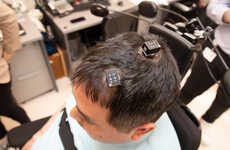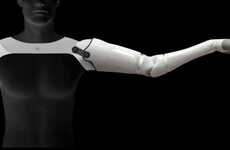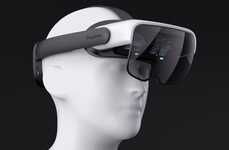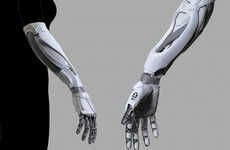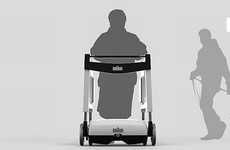
Researchers Develop Mind-Controlled Robots In Hopes to Assist Paraplegics
Elise Ying-Hei Ho — November 26, 2012 — Tech
References: youtube
Using a process called Affordance, which associates flickering objects with actions, researchers have been able to develop mind-controlled robots that can be directed to carry out specific tasks.
The CNRS-AIST Joint Robotics Laboratory is working with the CNRS-LIRMM Interactive Digital Human Group to create the mind-controlled robots using a Brain Computer Interface. The method the researchers use associates actions with objects. By bringing the object of choice to the robot's attention, the human can induce certain actions with the robot such getting drinks, picking up certain objects and delivering items. Though these mind-controlled robots are still in development, researchers hope to improve the technology so that physically impaired patients such as paraplegics can use them for everyday tasks or even sightseeing in a foreign country and in a sense, to live somewhat vicariously through the machines.
The CNRS-AIST Joint Robotics Laboratory is working with the CNRS-LIRMM Interactive Digital Human Group to create the mind-controlled robots using a Brain Computer Interface. The method the researchers use associates actions with objects. By bringing the object of choice to the robot's attention, the human can induce certain actions with the robot such getting drinks, picking up certain objects and delivering items. Though these mind-controlled robots are still in development, researchers hope to improve the technology so that physically impaired patients such as paraplegics can use them for everyday tasks or even sightseeing in a foreign country and in a sense, to live somewhat vicariously through the machines.
Trend Themes
1. Mind-controlled Robots - Disruptive Innovation Opportunity: Explore the potential of mind-controlled robots to assist physically impaired individuals in carrying out everyday tasks.
2. Brain Computer Interface - Disruptive Innovation Opportunity: Develop and refine the technology behind Brain Computer Interfaces to enhance human-robot interaction and control.
3. Assistive Robotics - Disruptive Innovation Opportunity: Further advance the field of assistive robotics to improve the quality of life for individuals with physical disabilities.
Industry Implications
1. Medical Technology - Disruptive Innovation Opportunity: Innovate within the medical technology industry to create advanced assistive robotics solutions for patients with physical impairments.
2. Robotics and Automation - Disruptive Innovation Opportunity: Drive innovation in the robotics and automation industry by integrating mind-controlled capabilities into robotic systems.
3. Artificial Intelligence - Disruptive Innovation Opportunity: Leverage artificial intelligence technology to enhance the capabilities and responsiveness of mind-controlled robots.
1.5
Score
Popularity
Activity
Freshness


